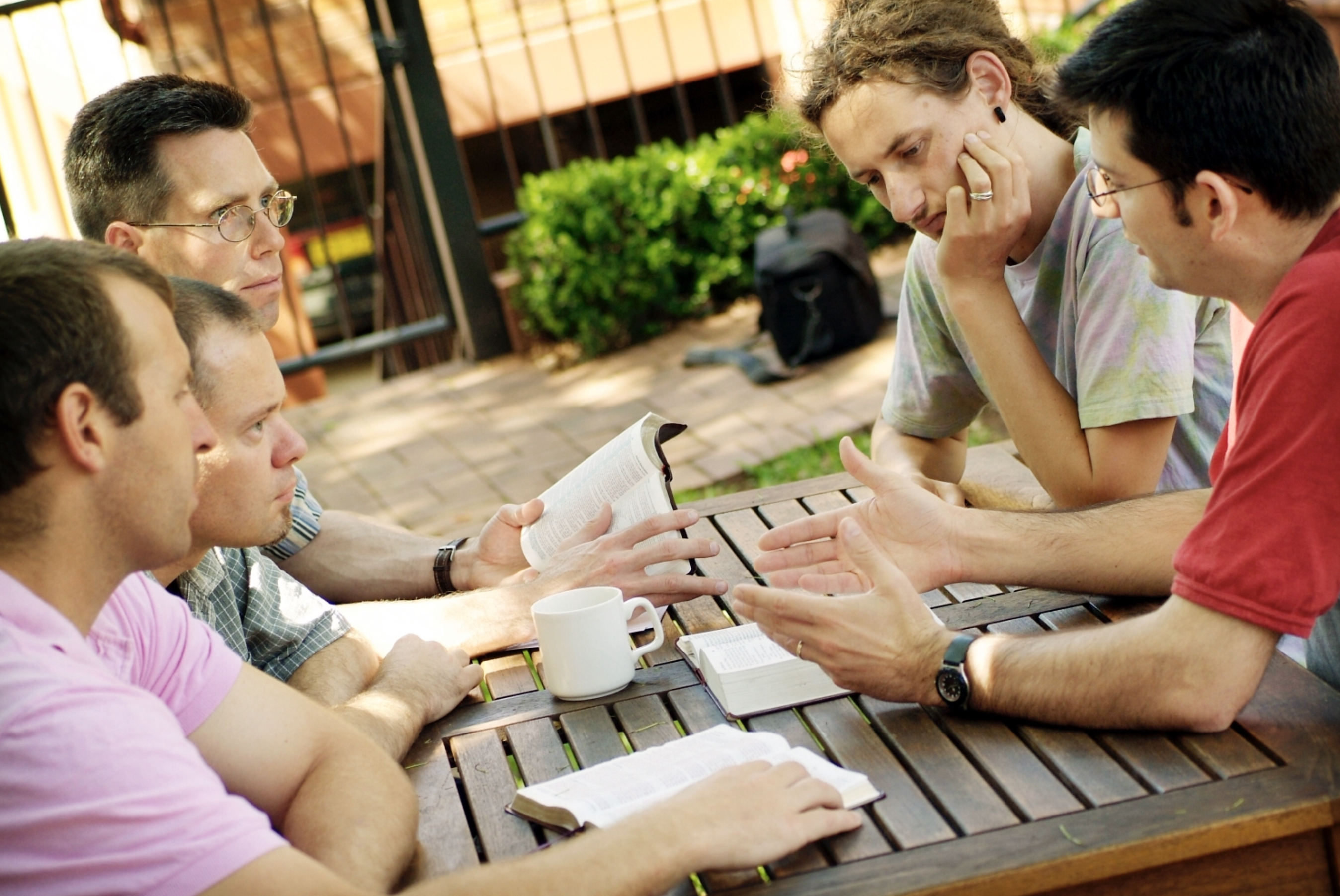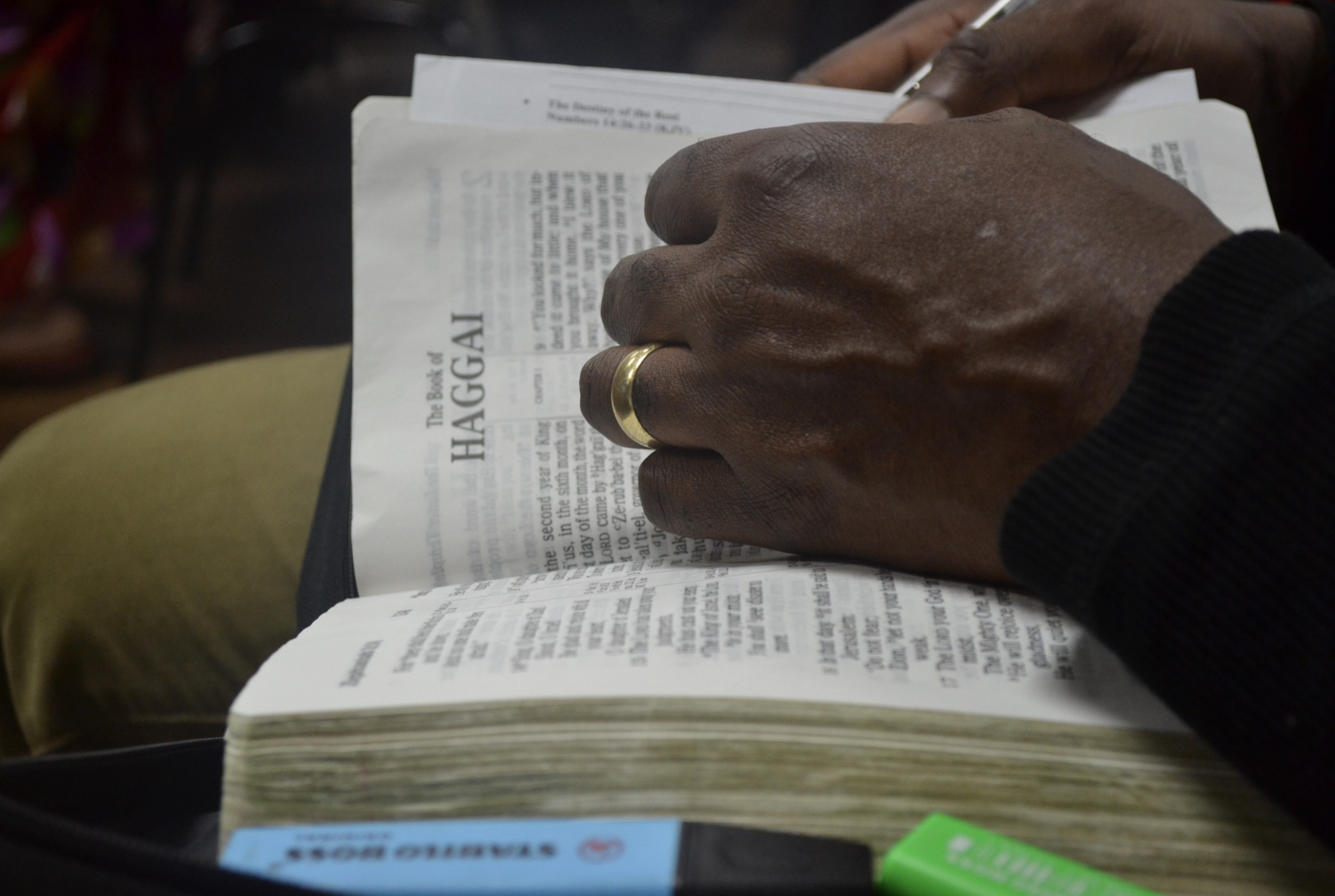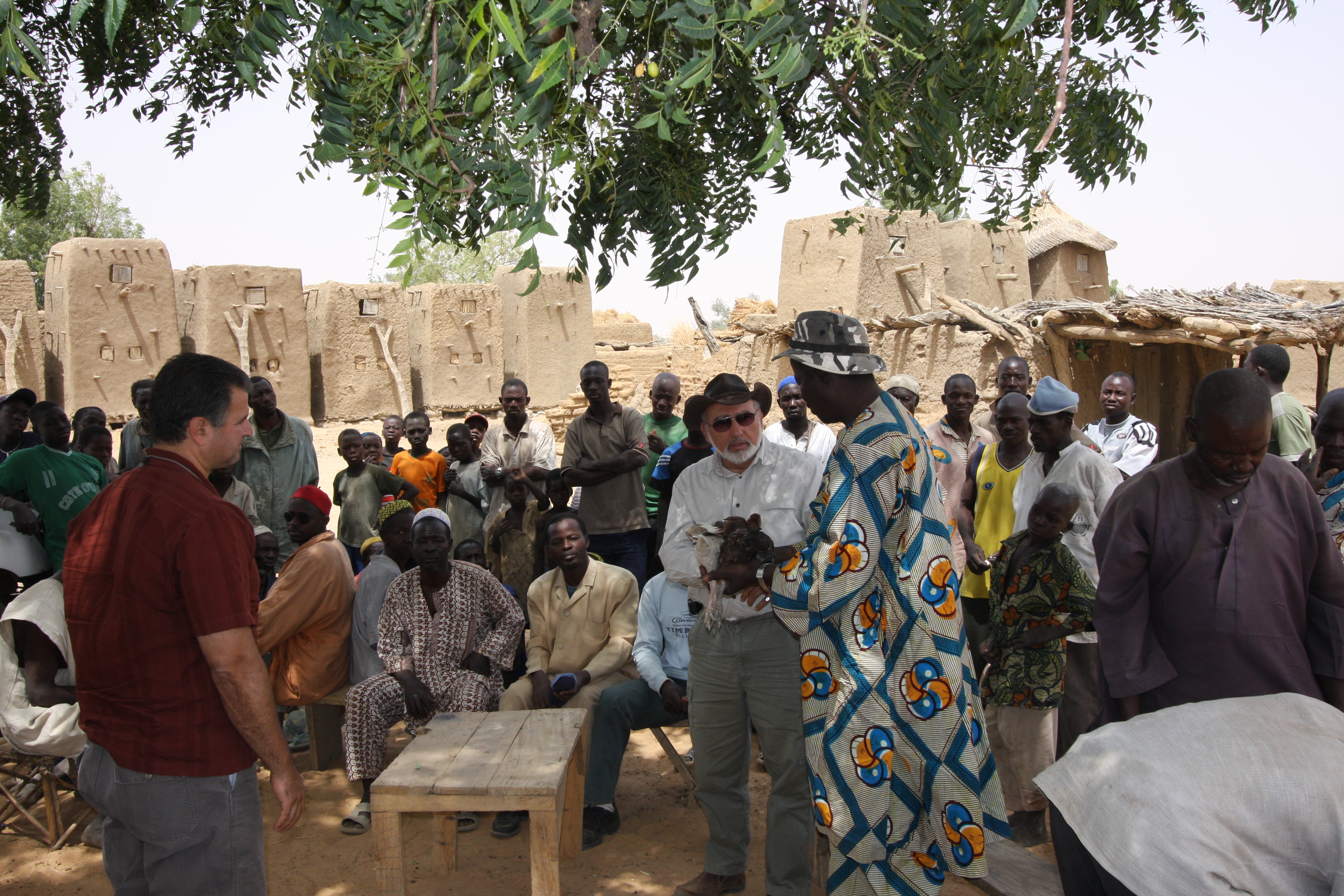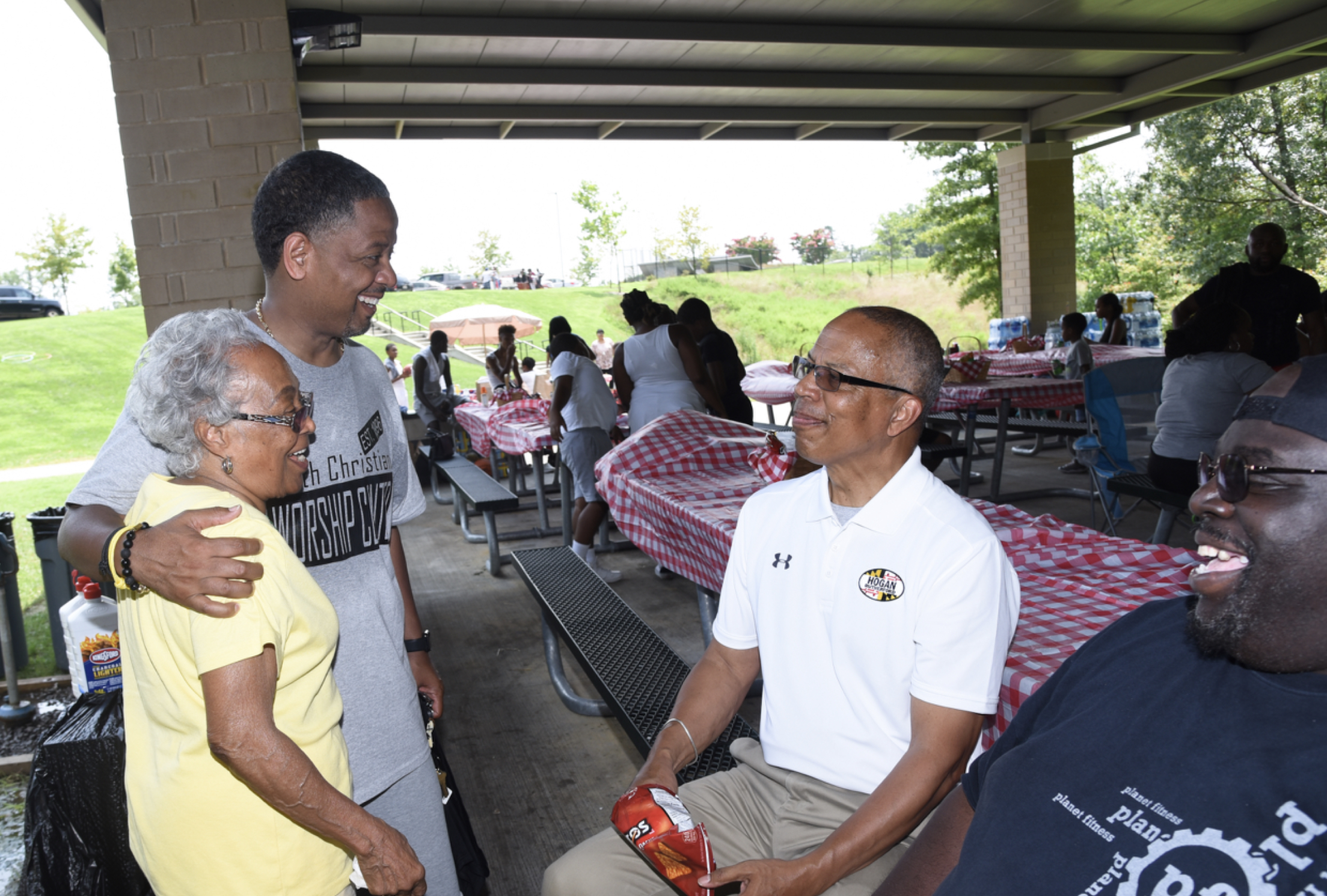This is the fifth in a 5-part series of articles which undergird all of the content we publish on hesed.com.
In our last article, Our Hearts Aflame, we discovered that God has entrusted us with the message of reconciliation and that God requires us to be faithful stewards of that message.
Once our hearts are aflame to be vessels through which God makes his appeal to a people who are desperate for his love, it is normal to wonder what type of vessel we might be. How would God want us involved in persuading others to be reconciled to God? What does it mean to be a faithful steward and how can we best fulfill that responsibility?

Let’s briefly look at the role of a steward and what it means to be a faithful steward before discussing some core building blocks of effective outreach.
WHAT IS A STEWARD?
By way of reminder, 1 Corinthians 4:1-2 says this: “Let a man regard us in this manner, as servants of Christ and stewards of the mysteries of God. In this case, moreover, it is required of stewards that one be found trustworthy.”
The Greek word translated “steward” here is oikonomos which refers to a household manager. This person was the highest-ranking servant in a wealthy first-century household. He was entrusted by the head of the household with the management of his affairs — finances, housekeeping, providing direction to other servants, and caring for and managing children in the household under the age of adulthood.
So when Paul says that he is a servant of Christ and a steward of the mysteries of God, he is alluding to the topics we discussed in the previous two articles.
We are servants of Christ. We have sworn allegiance to Him as king and so we joyfully obey His command to go into all the world and make disciples of all nations.
We are servants of Christ. We have sworn allegiance to Him as king and so we joyfully obey His command to go into all the world and make disciples of all nations. #worldmissions
And He has entrusted the message of reconciliation to us (as a community of believers rather than individuals — more on this later in this article) — we are stewards of the message, and He has given us responsibility for its dissemination throughout the world. And it is required of us that we be found trustworthy — or faithful — in our handling and transmission of the message.
WHAT DOES IT MEAN TO BE A FAITHFUL STEWARD OF THE MESSAGE OF RECONCILIATION?
To be a faithful steward means to understand the message of reconciliation and convey it:
- accurately;
- passionately; and,
- strategically.
While most of the remainder of this article will focus on conveying the message of reconciliation strategically, a few thoughts on accuracy and passion seem appropriate here.
The first two articles in this series, Beyond Our Wildest Dreams and We Swear Allegiance, outlined our understanding of the message of reconciliation. If we are to accurately convey that message, it is important that we continue to consider the content and nature of the message, allowing our understanding of reconciliation to be refined as we read, study, and meditate on the Scriptures and as we pray for God to reveal his heart and his ways to us through the Scriptures. In the words of Paul in his second letter to Timothy, we are to “be diligent to present (ourselves) approved to God as (workmen) who (do) not need to be ashamed, accurately handling the word of truth.”

The third article in this series, Our Hearts Aflame, spoke to the passion we should have in delivering the message of God’s deep love to those who have not yet been reconciled to Him.
The experience of Christ’s love motivates us (encloses us, holds us prisoner, surrounds us and hems us in, rules us, gives us no alternative but) to love others, allowing ourselves to be gripped and claimed and compelled by that love, by that hesed, to serve others in delivering the message of reconciliation.

EFFECTIVE STRATEGY
The final part of faithfully stewarding the message of reconciliation which has been entrusted to us lies in strategically conveying it using the methods that are most effective in our particular context.
While there are many aspects of an effective strategy for conveying the message of reconciliation, in this article we would like to focus on one aspect of such a strategy which seems to be often neglected in our consideration of how to best spread the message of God’s love but which is a critical component of all outreach — the importance of community.
With that in mind, here’s a question to ponder: what is the role of the local church in evangelism? We’re not asking you to think about the role of the individuals who make up the local church. Instead, we’re asking you to think about the role of the collective community of believers that gather together on a regular basis. Also, we should hasten to add that “church” in this context does not necessarily mean the regular gathering of believers which takes place under the auspices of a church organization (e.g., the traditional understanding of “church”) — it could easily mean the regular gathering of a group of believers in a house meeting, at the local coffee shop, at neighborhood barbecues, etc.
The typical evangelical understanding of the role of the local church in evangelism seems to be that it provides follow-up and discipleship once an unbeliever is converted to Christ. Evangelicals today tend to not see the church, as a collective community, playing a primary role in leading unbelievers to Christ. Of course, we would acknowledge that unbelievers do attend meetings of the church and subsequently convert to Christ as a result of their attendance. But we don’t think that evangelicals typically understand the corporate life of the local Christian community as contributing to the path leading up to an unbeliever’s conversion.
In the common evangelical approach, once an unbeliever is converted to Christ, then a local expression of the body of Christ has a role — that’s why new converts are typically told to “find a good Bible-believing church.” The local church is then seen as the context in which the new believer’s life in Christ is nurtured, in which the new believer is discipled, called to service, etc.
First, there is conversion through the efforts of an individual, a sermon, an evangelist, etc. Then the newly-converted believer is advised to look to the local church to help them grow in their newfound faith.
We believe the New Testament reveals a different paradigm. We believe that the New Testament sees the corporate life of the local community of believers as a crucial element which leads the unbeliever to conversion.
The New Testament sees the corporate life of the local community of believers as a crucial element which leads the unbeliever to conversion. #worldmissions
There are a few passages of Scripture which lead us to this conclusion. Let’s examine them briefly.
John 17:20-23
“I do not ask on behalf of these alone, but for those also who believe in Me through their word; that they may all be one; even as You, Father, are in Me and I in You, that they also may be in Us, so that the world may believe that You sent Me. The glory which You have given Me I have given to them, that they may be one, just as We are one; I in them and You in Me, that they may be perfected in unity, so that the world may know that You sent Me, and loved them, even as You have loved Me.”
According to this passage, if unbelievers see that Jesus’ disciples are one, they will believe that the Father sent Jesus (along with, we believe, an understanding of Jesus’ mission on earth). If unbelievers see that Jesus’ disciples are perfected in unity, they will know that the Father loves them as He loves Jesus. The converse is true as well. If unbelievers do not see that Jesus’ disciples are one (even though they may, in fact, be one), they will not believe that the Father sent Jesus (nor will they understand Jesus’ mission on earth). If unbelievers do not see that Jesus’ disciples are perfected in unity (even though they may, in fact, be perfected in unity), they will not know that the Father loves them as He loves Jesus.
The important point here, we think, is that the unbeliever has to see these things for them to have any impact on his/her understanding. Unless there is a public demonstration of authentic Christian community in the eyes of the unbeliever, the unbeliever will not know that the Father loves them and that He sent Jesus.
So, if an unbeliever does not know that the Father loves them nor that the Father sent Jesus (along with an understanding of Jesus’ mission on earth), can that unbeliever reconcile themselves to God and swear allegiance to Jesus the king? We submit that no, they cannot reconcile themselves to God nor swear allegiance to Jesus the king without that prior understanding because it means they do not understand the very basic elements of the salvation message.
An authentic expression of biblical community is the foundation of all effective outreach.
1 John 4:7-16
“Beloved, let us love one another, for love is from God; and everyone who loves is born of God and knows God. The one who does not love does not know God, for God is love. By this the love of God was manifested in us, that God has sent His only begotten Son into the world so that we might live through Him. In this is love, not that we loved God, but that He loved us and sent His Son to be the propitiation for our sins. Beloved, if God so loved us, we also ought to love one another. No one has seen God at any time; if we love one another, God abides in us, and His love is perfected in us. By this we know that we abide in Him and He in us, because he has given us of His Spirit. We have seen and testify that the Father has sent the Son to be the Savior of the world. Whoever confesses that Jesus is the Son of God, God abides in him, and he in God. We have come to know and have believed the love which God has for us. God is love, and the one who abides in love abides in God, and God abides in him.”
In writing to the churches of Asia Minor from Ephesus, John encourages his readers to embrace Christian community and live out its characteristics — “Beloved, let us love one another … we also ought to love one another … if we love one another …”
In the midst of this encouragement to participate in Christian community, John says that “no one has seen God at any time” (verse 12a). But then he goes on to say that if we love one another (if we live out the characteristics of true Christian community), then God abides in us and His love is perfected in us (verse 12b). It’s as if John is confirming the ultimate truth that no one has ever seen God in physical form, but also saying that if God abides in us and His love is perfected in us (because we love one another), people who observe us will “see” God in our lives and the way we conduct ourselves toward each other.
In fact, in verse 14a of this passage, despite having earlier said that “no one has seen God at any time,” John says, “We have seen …” And not only have we “seen” God in the way the community of believers conducts itself toward each other, but also “… we testify that the Father has sent the Son to be the Savior of the world (in verse 14b)” and in verse 16, “We have come to know and have believed the love which God has for us” (both echoing the language of John 17:21-23).
By observing the life of the Christian community, those in the church of Ephesus and the other churches of Asia Minor had come to saving faith (they had come to know and believe the love God had for them and to testify that the Father sent Jesus to be the Savior of the world) — they had cast themselves upon the sacrifice of Christ as their only hope and had sworn allegiance to Jesus their king.
An authentic expression of biblical community is the foundation of all effective outreach.
An authentic expression of biblical community is the foundation of all effective outreach. #evangelism #worldmissions
Luke 10:1-11
“Now after this the Lord appointed seventy others, and sent them in pairs ahead of Him to every city and place where He Himself was going to come. And He was saying to them, “The harvest is plentiful, but the laborers are few; therefore beseech the Lord of the harvest to send out laborers into His harvest. Go; behold, I send you out as lambs in the midst of wolves. Carry no money belt, no bag, no shoes; and greet no one on the way. Whatever house you enter, first say, ‘Peace be to this house.’ If a man of peace is there, your peace will rest on him; but if not, it will return to you. Stay in that house, eating and drinking what they give you; for the laborer is worthy of his wages. Do not keep moving from house to house. Whatever city you enter and they receive you, eat what is set before you; and heal those in it who are sick, and say to them, ‘The kingdom of God has come near to you.’ But whatever city you enter and they do not receive you, go out into its streets and say, ‘Even the dust of your city which clings to our feet we wipe off in protest against you; yet be sure of this, that the kingdom of God has come near.’”
This passage gives us a vivid picture of Jesus’ strategy to reach the cities of first century Palestine with the gospel. Jesus sends out the seventy two by two — in other words, he sends out micro-communities to reach the lost. He tells them to find persons of peace — those who are open to the Word of the Kingdom in a local area — and to stay in those persons’ houses.
And he tells them to take their meals with the person of peace and their family. The references to eating and drinking are important. In Middle Eastern thought, eating a meal with someone signifies that I accept that person completely and without reservation. To eat a meal with someone is to say to them that I want an intimate friendship with them, that they are my brother or sister (part of my family), that I desire to live in community with them.

Through this process of Jesus’ disciples finding a person of peace, living with them and eating with them, the micro-communities of two disciples would eventually expand to include the households of the persons of peace. And so, when the disciples leave those cities, they leave believing communities behind and those communities become the witness to Christ’s love and purpose in those cities.
An authentic expression of biblical community is the foundation of all effective outreach.
Acts 2:42-47
“They were continually devoting themselves to the apostles’ teaching and to fellowship, to the breaking of bread and to prayer. Everyone kept feeling a sense of awe; and many wonders and signs were taking place through the apostles. And all those who had believed were together and had all things in common; and they began selling their property and possessions and were sharing them with all, as anyone might have need. Day by day continuing with one mind in the temple, and breaking bread from house to house, they were taking their meals together with gladness and sincerity of heart, praising God and having favor with all the people. And the Lord was adding to their number day by day those who were being saved.”
This passage contains one of the most detailed descriptions of Christian community in the New Testament. The believers were corporately devoting themselves to four things — the apostles’ teaching, fellowship, the breaking of bread, and prayer.
For the same reasons described above about the significance of the meal in Middle Eastern thought, the references to the breaking of bread and taking meals together are important.
The disciples were “together” and “had all things in common” (they provided for one another’s needs). They continued with one mind in the temple. Their meals together (again, symbolic of intimacy) were characterized by gladness and sincerity of heart.

What was the result of this life of the community of believers?
“… the Lord was adding to their number day by day.”
An authentic expression of biblical community is the foundation of all effective outreach.
IMMERSION INTO COMMUNITY
Based on these passages of Scripture, it is our strong conviction that ideally, unbelievers would be immersed into Christian community prior to conversion. It is when the unbeliever is immersed into the community of believers that the love of God is revealed to them and that they begin to understand the purpose of Jesus’ mission on earth.
An emphasis on biblical community in our outreach efforts should lead us to create environments for sustained social transaction with unbelievers so that we gain credibility and so they can hear the gospel first through our example (our life message of love expressed in community) and then through our words. Ideally, our outreach projects will be designed to allow daily consistent sharing with unbelievers in the context of community.
An emphasis on biblical community should also lead us to reconsider our concepts of biblical teamwork. As we mentioned in passing above, the message of reconciliation has been entrusted to us as a community of believers rather than as individuals.
The teams that act to convey the message of reconciliation are ideally broader than we might like to initially think. Such teams are composed of some who go physically (either a long way away or locally), some who provide prayer support, some who provide financial support, and some who provide logistical support.
The teams that convey the message of God’s love are also ideally more diverse than we may initially be comfortable with. Ideally, the public demonstration of authentic Christian community in a local geographic area will involve unity across traditional dividing lines (ethnocentric, political, socioeconomic, multinational, etc.). If our communities do not involve a breaking down of such barriers, how will the love of God actually be demonstrated to the unbeliever? Love expressed within groups of similar people is easy — it’s the love of God’s people which crosses lines which will impact the unbeliever and convince him/her of the love of God.
Love expressed within groups of similar people is easy — it’s the love of God’s people which crosses lines which will impact the unbeliever and convince him/her of the love of God. #evangelism #worldmissions
This paradigm of community and biblical teamwork reflects the pattern established by Jesus when He sent out the seventy — he “sends our teams out” (although some members of the team may physically “stay behind” to provide prayer, financial, and logistical support) as micro-communities which reveal the love of God to those who observe us.
Such an effort to build community and allow the unbeliever to be immersed into our fellowship will require us, in many cases, to reshape our wineskins (Matthew 9:17; Mark 2:22; Luke 5:37-39).
In his book The Problem of Wineskins, Howard A. Snyder describes wineskins in this way: “There is that which is new and potent and essential — the gospel of Jesus Christ. And there is that which is secondary, subsidiary, man-made. These are the wineskins, and include traditions, structures, and patterns of doing things which have grown up around the gospel.”
In order for us to emphasize biblical community in our outreach efforts and create environments for sustained social transaction with unbelievers, we will need to reshape our wineskins — the traditions, structures, and patterns of doing things which we may have employed for years in transmitting the message of reconciliation to the world.
Some examples of the reshaping of wineskins follow, and we would encourage you to allow these examples to challenge your current methods of declaring the gospel.
THE WARA PROJECT
The Wara Project is an effort to spread the message of reconciliation to the unreached Malinkes of Mali (90% Islamic). The project has as its ultimate goal the conversion of Muslims to Jesus.
The strategy begins with meeting Muslim villagers at their point of need. This includes teaching agricultural self-sufficiency methods, practical irrigation schemes, construction skills (such as masonry, welding, and roofing), clean water filtering techniques, and principles of better cattle husbandry. The strategy also features education for the children of the village through a Christian school in the middle of several Muslim villages (Jigiya Kalanso — the School of Hope).
In using these methods, the team of believers involved in the project are creating opportunities for daily interaction with Muslims who might never come to a church service (although that is slowly changing!).
Those who are being trained in construction methods or special projects (to build school facilities or maintain agricultural equipment) attend daily meals at which Bible study and prayer are always conducted (and similar to our comments above, we should not miss the significance of meals in this context). The project leaders and the parents of children who are enrolled in the school have agreed to “pay” for their children’s education with 2 days of work per month at the self-sufficiency agricultural project (and in addition to the education of their children, those who work at the agricultural project also receive a portion of what is produced at harvest time — to help them make ends meet during the dry season). These parents also attend the daily meals on the days they work.
Muslim villagers who work at the project and attend the daily meals/Bible study/prayer gatherings see the life message of the project team and hear the Word of God daily.
And Muslims are turning to Christ because of what they observe in the community of believers working in the Malinke villages. These include a young man who had been trained to be a fundamentalist imam, the grandson of a village chief, a Wahabi fundamentalist, members of currently warring tribes, and several others.
The Wara Project does not follow a traditional pattern of outreach today. It reflects reshaped wineskins which are a better vessel for the delivery of the message of reconciliation.
The project is also an example of how authentic Christian community is the foundation of effective outreach. A micro-community of believers (starting with one missionary couple but growing as workers — both African and Western — have joined them on the outreach team) was sent to a Muslim village in West Africa. The villagers observe the unity of believers and the love expressed between them and over time, many have come to believe that the Father loves them and that the Father sent Jesus to be the Savior of the world — just as Jesus promised.
Find out more about the Wara Project at http://www.arzouni.com/what-we-do/
LIVE | DE∀D
According to their online description of themselves, “Live Dead is a grassroots initiative that partners with the global body of Christ to plant churches among unreached people groups through teams (emphasis ours).” They define teams as “collections of people working together for the common goal of planting the church among unreached peoples.”
When Live Dead began in 2011, there was one team working with one unreached people group. Today, Live Dead has grown to 58 teams working among the same number of unreached people groups. In their geographic area of service, there are over 4,600 unreached people groups representing nearly 3 billion people, the overwhelming majority of whom have no Christian friends, no accessible church, and no hope without Jesus.
Watch this video for a good overview of Live Dead’s philosophy:
Live Dead does not follow what has been historically a common approach to missions — send one person (or one couple or one family) to one geographic area. Instead, Live Dead’s emphasis on teams reflects reshaped wineskins which are a more effective foundation for the proclamation of the gospel.
Live Dead teams are a vivid example of how authentic Christian community is the foundation of effective outreach. Teams of people (often multinational, multigenerational, and ethnolinguistically diverse) are sent to unreached people groups so that the unreached can observe the love of God being lived out in intra-team relationships.
Two quotes from the book Live Dead: The Journey (which is partly a prayer journal for unreached people groups and partly an exploration of Live Dead’s core values) are relevant here:
“How will unbelievers be drawn to following Jesus if they don’t see love among the brothers and sisters? Why would they even want Christianity if we can’t even love each other? The love among team members should be obvious and draw lost people to want to receive and experience the same kind of love.”
How will unbelievers be drawn to following Jesus if they don’t see love among the brothers and sisters? From Live Dead: The Journey #worldmissions
“The best vehicle for working in apostolic function is the mobile team or apostolic band in which people of multiple giftings work with one purpose to proclaim Christ to those who have not heard and to plant the church.”
Find out more about Live|Dead at their website.
DINNER CHURCH
The centrality of the dinner table in the life of the early church is suggested in several New Testament passages. In Acts 2:37-47, we are told that devotion to the breaking of bread daily from house to house was a normative aspect of church life. Acts 6:1-7 tells us that food was distributed daily among the believers. In Acts 20:7-12, the believers gather in Troas in order to break bread (this emphasis on the purpose of a church gathering being the breaking of bread together is repeated in 1 Corinthians 11:17-20,33).
Recognizing the centrality of the dinner table in the life of the New Testament church led the leadership of the declining, 85-year-old Westminster Community Church in Seattle, Washington in 2008 to plant a “dinner church” in a community center 60 blocks south of their church building in a neighborhood where many to most residents were financially challenged, isolated, lonely, and without hope. Within a year, hundreds of unchurched people were sitting around tables in a community center on a weekly basis, observing the love of God being expressed in the midst of His community (a pocket of life in their community), hearing the stories of Jesus, and being prayed for.
There are now ten different expressions of “dinner church” in and around Seattle. Six nights a week, somewhere in Seattle, there is a lavish dinner served to community residents by believers in Jesus. Worship music is playing in the background. Artists are painting metaphors of the gospel. Speakers are telling the stories of Jesus. Friendships are being built between believers and unbelievers around the dinner table. People are being converted to Christ and being discipled in the Way of Jesus.
Now there are over 160 formal dinner church locations reported to the Dinner Church Collective, a (in their own words) “nation-wide community of mealtime missionaries spreading the word about a simple, effective and historic approach to starting new forms of church” (and who knows how many informal locations of “dinner churches” exist that have not been reported?).
Dinner churches do not follow a traditional method of church planting. Their emphasis on the dinner table and the fellowship which occurs around it represent reshaped wineskins which are a more effective approach for sharing the gospel.
Demonstrations of authentic Christian community take place around dinner tables multiple times throughout each week in a geographical area so that unbelievers see a vivid demonstration of the love of God lived out among their newfound friends.
Find out more about The Dinner Church Collective at their website and about the expression of dinner church in Seattle at their website.
FINAL THOUGHTS
At the end of his gospel, Matthew records Jesus’ words which have become known as the Great Commission: “All authority has been given to Me in heaven and on earth. Go therefore and make disciples of all the nations, baptizing them in the name of the Father and the Son and the Holy Spirit, teaching them to observe all that I commanded you; and lo, I am with you always, even to the end of the age.”
As those who have cast their lives upon the sacrifice of Christ and have sworn allegiance to Jesus the King, as those to whom the message of reconciliation has been entrusted, there is only one path to faithful stewardship of the message — only one path to accurately, passionately, and strategically make known the love of God and the message of salvation in Jesus.
No believer in Jesus is exempt from the Great Commission. In order to live in allegiance to Jesus, your primary ambition must include a passion to disciple all nations. #worldmissions
We submit that no believer in Jesus is exempt from the Great Commission. You may go, you may pray, you may provide financial support, you may provide logistical support, you may contribute in multiple ways — but in order to live in allegiance to Jesus, your primary ambition must include a passion to disciple all nations. It is our conviction that all believers should be part of a team seeking to reach the unreached.
As we conclude this final introductory article, we invite you to consider the words of Oswald J. Smith in his book The Passion for Souls: “You can do what millions of others have done if you want to. You can settle for the monotony of … life, get married, raise children, work, retire, die, and be forgotten, or … you can become a pioneer. A trailblazer. Invest your life in great adventure for God, and be the first to give some unreached tribe the gospel, and be remembered forever. Which is it to be? It is for you to decide.”
NEXT STEPS
You may go, you may pray, you may provide financial support, you may provide logistical support – however you contribute, it is our conviction that all believers should be part of a team seeking to reach the unreached. #worldmissions
As you consider how you can be part of a team devoted to reaching the unreached, we suggest you begin by exploring the ten “worlds” we have identified (the Islamic World, the Buddhist World, the Hindu World, the Sikh World, the Jewish World, the Animistic World, the Catholic and Orthodox World, the Bahá’i World, the Western World, and the Digital World). As you read about the content and news from our contributors about these “worlds,” we suggest that you follow these next steps (individually and in concert with other believers in your local community):
- Join us in our Daily Declaration!
- Pray for God’s work. Pray that God would send laborers (plural, i.e. teams) into specific areas where unreached people groups are located. Pray that these teams would find people of peace and that communities of Christ-followers would be formed in the midst of unreached people groups.
- Learn about existing teams and teams that are just forming to reach the unreached.
- Begin to ask God to lead you to an existing team or be involved in forming a new team that is planting or will plant the church among unreached people groups.
- Begin to build relationships with team leaders and members. Ask them how you can serve and support them in their work to make known the love of God and the message of salvation in Jesus to those who have no hope.
- Ask God to help you determine, in concert with existing team members, what your role will be as part of the existing team or a team that is being formed. Would he have you physically go to where the team is located and join them in their work? Would he have you join in their mission through prayer? Would he have you join their outreach through financially supporting their efforts? Would he have you join their evangelism efforts by providing them with logistical support?
Follow one or more of these links to begin your journey:
- The Islamic World
- The Buddhist World
- The Hindu World
- The Sikh World
- The Jewish World
- The Animistic World
- The Catholic and Orthodox World
- The Bahá’i World
- The Western World
- The Digital World
Note: our categorization of “Ten Worlds” is somewhat arbitrary. If you have other suggestions for systems of thought/faith you feel we should be including but which do not easily fit into one of the ten worlds we feature, please do not hesitate to contact us with your suggestion.

Leave a Reply